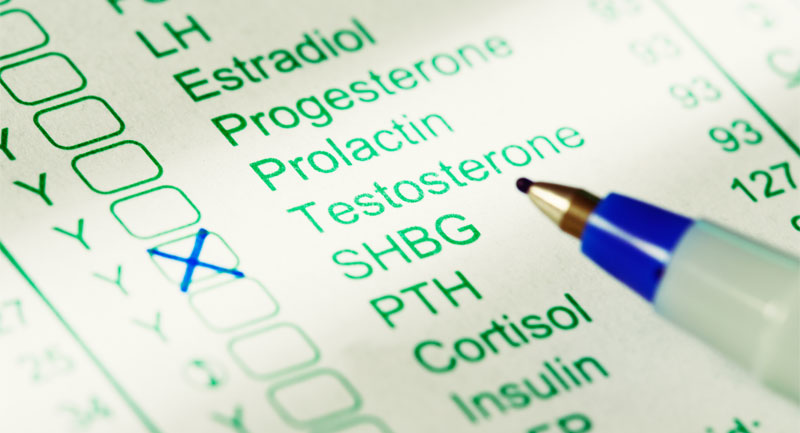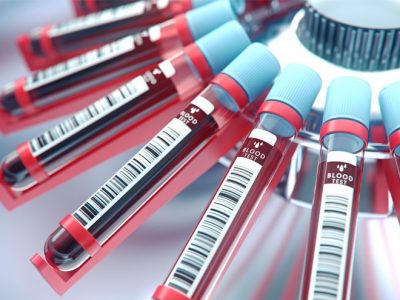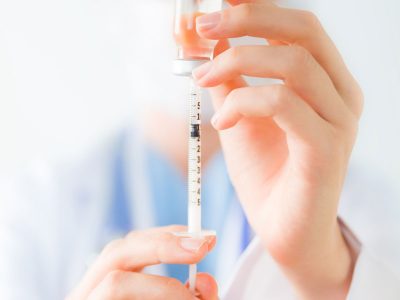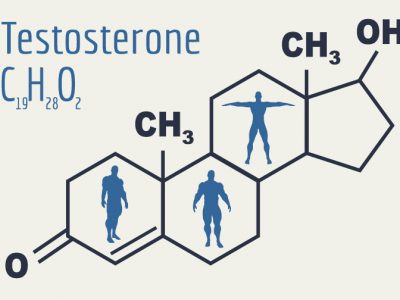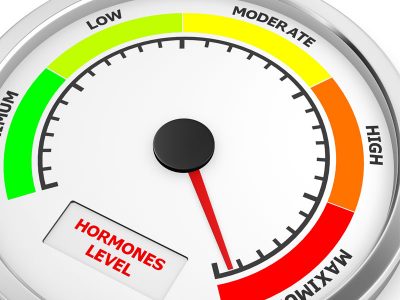- Home
- Growth Hormone
- Growth Hormone
- Growth Hormone Deficiency
- Growth Hormone Therapy
- Growth Hormone Injections
get startedThe Most Effective Hormone Replacement TherapiesBlood Testing for Testosterone Levels
- The most accurate way to determine your testosterone levels is with a simple blood test.
- Women may also experience Low T (although the blood levels have a range lower than men.)
- The so-called “normal” testosterone levels for men and women changes as you age.
- There is no special preparation required for either a total testosterone test, or a free testosterone test.
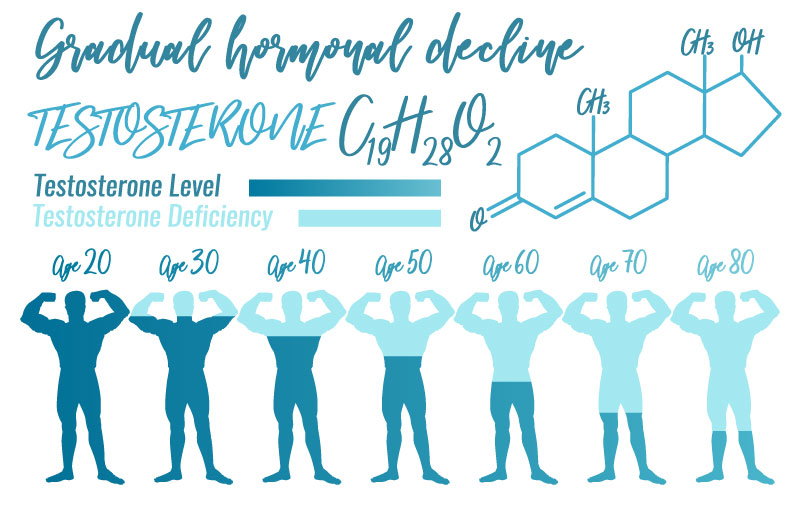
Testosterone is the most important male hormone. Women’s bodies also make and need testosterone. Which means that both men and women can and do suffer from low testosterone, a condition also known as “Low-T.”
Both men and women produce less testosterone the older they get. In some people, age-related testosterone decline is well-tolerated. In others, it can lead to the many debilitating systems of low testosterone.
If you are a man or woman over 40, and are feeling sluggish, worn-out, putting on weight, having cognitive difficulties, and/or are putting on weight – you may be suffering from low testosterone.
The only way to know for sure is to have you testosterone levels checked. The most accurate way to determine your testosterone levels is with a simple blood test.
What Are the Normal Testosterone Levels for Men and Women?
The so-called “normal” testosterone levels for men and women changes as you age. Also, depending on age, weight, overall fitness and lifestyle, what is considered a normal testosterone level for one man, could be low for another. However that having all been said, the normal range of testosterone levels for adult men is from about 270 to 1070 nanograms per deciliter (ng/dL).
The normal range for women of age 19 and up, is from 8 to 60 ng/dL.
The following graphic illustrates the decline in testosterone levels in men as they age.
Learn to Identify the Signs and Symptoms of Low Testosterone
It is important that men and women both learn to identify the signs of low testosterone.
The signs & symptoms of Low T may include:
- Fatigue
- Loss of stamina
- Reduced sex drive
- Erectile dysfunction
- Reduced muscle mass
- Decreased bone density
What is considered to be the normal testosterone level for men and women changes as you age.
How Do We Test for Testosterone Levels?
If your doctor suspects that you have low testosterone, he or she will most likely run a blood test that tests for your total testosterone. The normal testosterone ranges mentioned above are based on your total testosterone level. Most of the testosterone in your bloodstream is what is known as “bound” testosterone, and a smaller percentage exists in the blood stream as “free” testosterone. “Total testosterone” refers to all of the testosterone in your blood at a given time.
The following chart illustrates the normal total testosterone levels for men and women by “Tanner Stage” and age. The Tanner Scale breaks down the observable signs of puberty into 5 stages, running from Stage I from about age 10 to Stage V at 15 for boys, and about age 8 to 15 for girls.
Tanner StageMale Testosterone (ng/dL)FemaleTestosterone (ng/dL)I< 3< 3−6II< 3−432< 3−10III65−778< 3−24IV180−763< 3-27V188−8825−38–Adult MaleAdult Female–18 y: 264-91620 to 49 y: 8−48––> 49 y: 3−41Source: LabCorp
By way of comparison, the following chart gives the so-called “normal” testosterone levels by another quality testing lab – Quest Diagnostics. Quest does not use the Tanner Scale, but rather indicates the normal ranges for males and females by age.
However, by comparing to the chart above, you can see how the “normal” ranges differ.
This all speaks to just how complex determining what a normal total testosterone level in adults is, and is exactly why we do not look at your age and gender alone, and decide what should be the normal range, rather we take everything into account – your age, gender, diet, symptoms, and lifestyle – to determine what should be the “normal” range for you. Once we determine what your unique optimal level is, we can tailor treatments that will get you in that zone, so you can perform at your personal best, regardless of your age.
1-5 Years≤5≤86 – 7 Years≤ 25≤ 208 – 10 Years≤ 42≤ 3511 Years≤ 260≤ 4012-13 Years≤ 420≤ 4014-17.9 Years≤ 1000≤ 40≥ 18 Years250 – 11002 – 45Source: Quest Diagnostics
What is the Difference Between Free Testosterone and Total Testosterone?
Most of the testosterone in your blood attaches to 2 proteins: albumin and sex hormone binding globulin (SHBG). Some testosterone is not attached to proteins, or free. Free testosterone and albumin-bound testosterone are also referred to as bioavailable testosterone. This is the testosterone that is easily used by your body.
If your healthcare provider thinks that you have low or high testosterone, he or she will first test total testosterone levels as above. This looks at all 3 types of testosterone. The free testosterone test may help give more information when total testosterone is low.
As with the total testosterone levels described above, your levels of free testosterone will vary due to age.
The following table illustrates the range of normal “free” testosterone for men and women by age.
Gender/Age (y)Range (pg/mL)Male0 to 19Not established20 to 299.3−26.530 to 398.7−25.140 to 496.8−21.550 to 597.2−24.0596.6−18.1Female0 to 19Not established190.0−4.2Source: LabCorp
A Note About Free Testosterone
When we are testing for and diagnosing someone with low testosterone, it is always our goal to find what it the “optimal” or “normal” range for their individual needs, goals and lifestyle. As you can see from the charts above, even a respected testing lab such as LabCorp can say that for a 60 year old man, a level of 6.6 pg/mL of free testosterone can be “normal,” and yet our doctors know that we see patients in that range that feel far from normal. Over the years of treating a variety of men between the ages of 35 and 65 with the symptoms of low testosterone, our doctors have discovered what we believe to be the “optimal” and not necessarily the “normal” level of free testosterone in the blood. We strive to get most patients — regardless of age — into a range of from 20 – 25 pg/mL, and find that most men can enjoy a great quality of life, free from the symptoms of low testosterone at that level.
Most of the testosterone in your bloodstream is what is known as “bound” testosterone, and a smaller percentage exists in the blood stream as “free” testosterone.
How to Prepare for the Test
There is no special preparation required for either a total testosterone test, or a free testosterone test, however you may be asked to refrain from taking supplements of Biotin(also known as vitamin B7, B8,vitamin H, or coenzyme R), for 72 hrs prior to taking the test.
Evaluating Your Testosterone Blood Test Results
If the results of your testosterone blood tests indicate that your testosterone levels are below the normal ranges for your age, weight and gender, you may be a candidate for testosterone replacement therapy.
What to Do If I Have Low Testosterone?
If the results of your testosterone testing indicate that you have Low-T, depending on your presenting symptoms and medical history, your doctor may prescribe testosterone injections. While testosterone therapy can be given in other forms, our doctors have found that testosterone injections are the safest and most effective form of testosterone therapy.
If the results of your testosterone blood tests indicate that your testosterone levels are below the normal ranges for your age, weight and gender, you may be a candidate for testosterone replacement therapy.
read this next
Hormone Testing – Blood Testing for Hormone Levels
The hormone tests used by Kingsberg Medical are designed to detect hormone imbalances, and specifically your levels of testosterone and human growth hormone. We…read moreWhat Can Testosterone Injections Do for You?
Are you wondering about what testosterone injections can do for you? If you are, then you probably have a lot more questions about testosterone…read moreTestosterone Therapy
Testosterone replacement therapy is used to treat patients with hypogonadism, more commonly known as low testosterone (Low T). Testosterone replacement therapy can be used…read moreWhat Is the Normal Growth Hormone Level for Adults
Growth hormone, or HGH, is one of the most important pituitary hormones. HGH is a vital regulatory hormone responsible for growth in children and…read more - Growth Hormone Therapy








